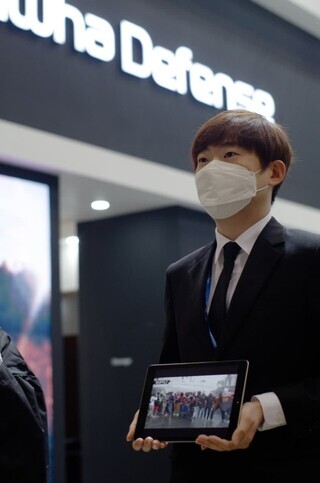hankyoreh
Links to other country sites 다른 나라 사이트 링크
Supreme Court acquits man who refused enlistment for personal convictions

A conscientious objector who refused to perform mandatory military service due to personal convictions other than membership in the Jehovah’s Witnesses faith was acquitted by a South Korean court for the first time in history.
On Thursday, the Supreme Court’s first division under Justice Kim Seon-soo upheld a ruling acquitting the 34-year-old defendant — known by his working name Si-woo — on charges of violating the Military Service Act.
“The defendant’s convictions and faith are deeply established and have formed a clear identity. He appears to have refused military service based on his genuine conscience,” the court concluded.
Si-woo was first referred for trial after refusing enlistment in active service in 2017. Identifying himself as queer, he said that he had negative feelings regarding an abusive group culture that forces masculinity on people.
He also said that he had developed a conscientious position advocating non-violence and pacifism over the course of his activities with a Christian group demonstrating over the 2009 Yongsan tragedy and opposing the construction of a naval base in Jeju’s Gangjeong Village.
In his first trial, he was sentenced to 18 months in prison, with the court ruling that “refusal of induction based on religious conscious or political benefits does not constitute ‘legitimate grounds’ as stipulated in the Military Service Act.”
In June 2018, the Constitutional Court concluded that the Military Service Act’s lack of provisions for alternative military service was an unconstitutional violation of freedom of consciousness. The Supreme Court similarly set a new precedent in granting acquittals in cases involving consciousness objection to military service for religious reasons.
The court in Si-woo’s appellate trial ruled to acquit, concluding that the defendant had “embraced non-violence and anti-war beliefs as an extension of his Christian faith, which emphasizes love and peace, and feminism, with its respect for minorities, and he appears to have refused his military service obligation accordingly.”
The court also said his actions “could not be seen as compromising or strategic.”
The Supreme Court came to the same conclusion in dismissing the prosecutors’ appeal.
By Joh Yun-yeong, staff reporter
Please direct comments or questions to [english@hani.co.kr]

Editorial・opinion
![[Column] Has Korea, too, crossed the Rubicon on China? [Column] Has Korea, too, crossed the Rubicon on China?](https://flexible.img.hani.co.kr/flexible/normal/500/300/imgdb/original/2024/0419/9317135153409185.jpg) [Column] Has Korea, too, crossed the Rubicon on China?
[Column] Has Korea, too, crossed the Rubicon on China?![[Correspondent’s column] In Japan’s alliance with US, echoes of its past alliances with UK [Correspondent’s column] In Japan’s alliance with US, echoes of its past alliances with UK](https://flexible.img.hani.co.kr/flexible/normal/500/300/imgdb/original/2024/0419/2317135166563519.jpg) [Correspondent’s column] In Japan’s alliance with US, echoes of its past alliances with UK
[Correspondent’s column] In Japan’s alliance with US, echoes of its past alliances with UK- [Editorial] Does Yoon think the Korean public is wrong?
- [Editorial] As it bolsters its alliance with US, Japan must be accountable for past
- [Guest essay] Amending the Constitution is Yoon’s key to leaving office in public’s good graces
- [Editorial] 10 years on, lessons of Sewol tragedy must never be forgotten
- [Column] A death blow to Korea’s prosecutor politics
- [Correspondent’s column] The US and the end of Japanese pacifism
- [Guest essay] How Korea turned its trainee doctors into monsters
- [Guest essay] As someone who helped forge Seoul-Moscow ties, their status today troubles me
Most viewed articles
- 1[Column] The clock is ticking for Korea’s first lady
- 2After 2 months of delayed, denied medical care, Koreans worry worst may be yet to come
- 3US overtakes China as Korea’s top export market, prompting trade sanction jitters
- 4[Column] Has Korea, too, crossed the Rubicon on China?
- 5[Correspondent’s column] In Japan’s alliance with US, echoes of its past alliances with UK
- 6Hong Se-hwa, voice for tolerance whose memoir of exile touched a chord, dies at 76
- 7[Editorial] When the choice is kids or career, Korea will never overcome birth rate woes
- 8Samsung barricades office as unionized workers strike for better conditions
- 9All eyes on Xiaomi after it pulls off EV that Apple couldn’t
- 10More South Koreans, particularly the young, are leaving their religions